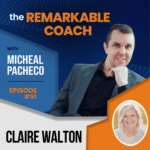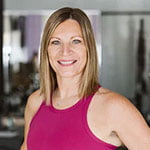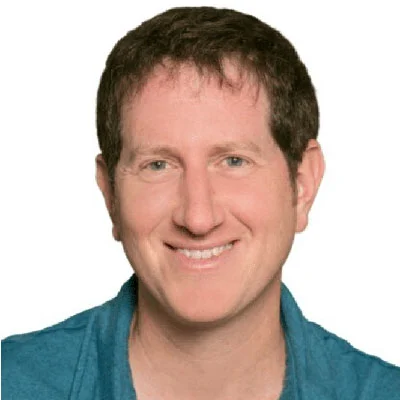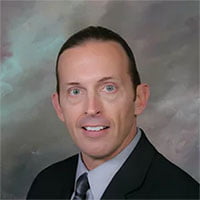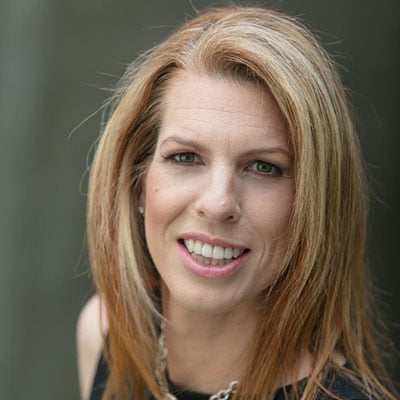Kevin Stafford 0:00
Hello everyone and welcome to another episode of the conversations with coaches podcast. I’m your host Kevin and I once again have one of my favorites I have so many I can barely choose one of my favorite guests from 2020 Do has already come back on. You might remember Claire Walton from our previous episode we refresh your memory player is a leadership and high performance coach, coaching executive and C suite leaders and their teams to achieve peak performance with a track record as an executive director and 25 years of experience coaching C suite leaders and their teams. She is also the author of the Amazon Best Seller super neuro you which was published back in mid 2021, I believe. Thank you for coming back on and chatting with me again. I had I remember having a blast. Last time we talked I went back and like listen to part of our episode. I was like, oh, yeah, that was on one. So I’m very pleased that you’re back on color.
Claire Walton 0:51
Oh, you’re very welcome, Kevin. And it’s lovely to be in the company of someone with such fantastic energy. I love it.
Kevin Stafford 1:00
I’m I am properly caffeinated as it is still what time is it right now. Little after 9am In my timezone. I believe we’re we’re in your your afternoon, evening time and yours. I like the collisions of catching people at different times of day, I find that it’s, I find it to be endlessly fascinating.
Claire Walton 1:17
Yeah, well, that’s easy. I’m on my no caffeine, since 12 o’clock, you know, wine to go into the evening to have a nice calm ritual, before a lovely night of sleep before starting all over again in another, well, 13 hours from now.
Kevin Stafford 1:36
That’s actually lovely. That’s when I cut my caffeine down as well. I get to about noon. And I’m like, All right, wrap it up, Kevin. And I want to make sure that they know has the half life to get out of my system. And then I find myself winding down perfectly right in the right headspace right heartspace in the evening. But then there’s those days, there’s there are those days where I’m tempting, why should I have the extra cup of coffee, and I like I go, I go and I’m like, damn sure what, what could go wrong. And then I’m hyper in the evening, and I don’t sleep as well. It’s like, it’s amazing how, how much your body tells you when you just listen to it.
Claire Walton 2:06
Honestly, 100%. And, you know, as you said in the intro, you know, I work a lot in terms of peak performance with leaders. So we’re not just working on things like, you know, leadership skills, and leadership styles and all those sorts of things that we do work on. But fundamental to all of that is, you know, you may well understand and know how and when to apply the right styles. And you might understand and know what the right leadership skills up. But if you’re not looking after your high performance basics, then you’re diluting your effectiveness in all of those things. And it’s not a case of again, knowing what those high performance basics are, it’s about sticking to them. So, you know, if one of them is about which it is, and it’s always the one I talked about first, having really good quality and the right amount of sleep, then you have to stick to the rules that you know will enable bad outcome to happen. So, so yeah, I yeah, I’m quite strict. And I’m quite strict with myself, because, you know, it’s not that, you know, we’re gonna talk, I think the conversation today quite a lot about values. And, and, you know, one of my values is about integrity, authenticity, kind of same sort of thing for me, because, for me, it’s important for me to have that integrity of doing the same things that I’m sharing with my clients that are going to help them and if I’m not doing them, then how much do I really believe these things make a difference? I always have that in the back of the back of my mind, you know, I want to read I do shop with absolute integrity, one of my core values, are authenticity, same sort of thing, then, then yeah, you know, don’t don’t suggest something to others, that you’re not prepared to do consistently. And so,
Kevin Stafford 3:57
yeah, I find very frequently for the longest time and I find that I stumble into these little sort of, they used to be paradoxes, kind of things. And now I understand them to be sort of part of a hole where it’s, I’m, I’m strict with myself so that I may be generous with others, including myself, it’s one of those things where it’s like, I’m strict about the things that I know that that that i No matter so that when the time comes for me to be generous, or to really explore the space or relax or move into something or be more of a servant to myself and to others, I have that capacity for that generosity. So it’s not, it’s not strict versus generous or strict versus sloppy. It’s strict, fueling generosity of spirit and of action. And it’s one of those things where it’s like you didn’t it didn’t quite make sense in my head at first, but it felt right. And the results showed out. And so I just kept doing it and thinking about it. And eventually I was like, Oh, I had some I had some faulty circuit circuitry in my brain where I was like, I wasn’t thinking of those things quite right and when I stuck to it when I was strict with it, the fruits kept showing up and kept bearing fruit kept able to share it’s the as this virtuous cycle. But that’s, that’s better here I can talk about that for for days. But you suggested starting and you’ve read it, you’ve kind of already touched on it a little bit. And so I’ll just kind of like catapult us the rest of the way in. When I asked you things you want to talk about, obviously, you stuck very, very closely to like your core, the core of your coaching practice, the core of who you are, and how you how you are. And so you mentioned working with clients on understanding their values, and using that understanding as a means of navigating their work and their life more authentically, and therefore more effectively. And I liked the way that you linked that together as a as a process. So let’s talk about that a little bit, just as as it pertains to you personally and in your practice.
Claire Walton 5:44
Yeah, absolutely. Well, you know, I have a bit of a strat plan these days, don’t we all? And, and my strapline is, you know, I’m working with people to help them achieve more success, but less stress. And so again, you might think, again, that’s a bit of a paradox in there, because it’s like one of the most success we have, the more stressful it is because we have to put more effort in and we have no one actually, the starting point is to have an intention of more success, or less stress, if you have that intention with anything. And then I work a lot with clients on intentionality. So you know, if we start with that intention, we go back to actually some of those peak performance basics that I spoke about, because they help us to be able to be more successful with less stress. And although I don’t call it a peak performance, basic, as I’m speaking this out, aloud, now, Kevin, I’m thinking I might actually put it in there. Because alongside that, I work with my clients on understanding their values. Because if we understand what is really important to us, you know, when it comes down to it, you know, when it’s really important, what is really important, then we can make decisions on a daily basis that align with that. And as a consequence, we feel less stressed, a lot of our stress is self induced. Because we’re compromising on our values. And again, I come to this, through my education around this, if you like academic education around it, but probably even more importantly, my own personal experience of eventually getting to that realization, and then working with clients, and then seeing them get to that realization, and then how that then flows into them get getting to this point of more success, less stress. In fact, I had a client in here this morning for three hours. And it was a first session. And this is exactly what we worked on. Absolutely. Coincidentally, this is what we worked on it, it was in his first session. So a lot of the time, this is what we might might do in that. And, and it’s interesting, one of the things I get I coincidentally just start off today is if I were to list my values, I would add a new one in so I normally talk about my own personal values as being about integrity, which I’ve mentioned, fairness, or it could be you know, equality and equity. It’s kind of around that. Making a difference. So it’s no surprise that I call my business leaders are mad at making a difference. Which again, could be around adding value, creating legacy, having a return on investment, making sure that whatever I’m doing was a return on investment, and actually prioritizing things based on return on investment, and learning constantly learning and growing. which lends to my competence. Okay. And then I’m just thinking, I think there’s another one that should be there for all of us, which is valuing our value.
Kevin Stafford 9:14
Okay, yeah, I think that’s almost it’s almost like the glue that holds a lot of it together to like, it’s almost like the mortar between the bricks that build the build the structure, because that’s like, what I might the first word that went right across the back of my brain when you said that value in your value, or values was gratitude, which has been it’s probably been it’s been very, it’s been even more top of mind this week for me than usual, because it keeps coming up in conversation about how how much of a connector gratitude is and how much of a fueler and an amplifier that gratitude is on in ways that I’m I’m really like, in ways that I know well from personal experience and seeing it in others and in ways that I’m really just now beginning to understand um, that, that and because the way that that using gratitude guys, I’ll use it as a placeholder word for now because I like the way you said it to the value in your values. Because that goes that has a way of working inward and fueling you and also at the same time radiating outward. And having that positive effect on those around you those who you are, whether by intention or by accident or proximity, you’re influencing impacting in ways that some of which you’re aware of, and others, which you might not be aware of. But that gratitude, that valuing of your values, it grounds you in such a way that I feel like it helps your your your potency as a human being, your ability to influence and effects positively just radiate both inward and outward. I’m thinking out loud here right now, and I’m listening, you’re starting to sound a little bit like you’re, you’re back in college in the dorm room. But
Claire Walton 10:48
really think about this, you know, I get people coming in here, or sometimes at work online, sometimes I’ll go and visit them in their location. And these are, by the very nature, because my target audiences is C suite, as you said. So there, if you like what we might consider traditionally successful. Yeah, as it as in, you know, they have the status, they have the job, and they have everything that goes with that the financial reward, and the lifestyle that goes with the financial rewards. However, a lot of those people are coming in here, or coming to see me meeting with me. And what we find is, they’re not actually valuing themselves enough. They’re not valuing what’s really truly important to them. Enough. Yeah. They are people pleasers who are self sabotaging. They’re achieving more success, but less stress, because they’re people pleasers, or they’re perfectionist, because they’re driven by a feeling of not being good enough, when they are clearly good enough. So they’re not valuing themselves, you know, and so on, and so forth. You know, you’ll have clients like today where, you know, they’re, they’re perhaps not sufficiently conscious of what’s really important to them. And as a consequence, they’re living and working work is a big part of C suite leaders lives. As all of us, you know, they’re living and working in a way that isn’t fully aligned to those values. But not intentionally, it’s because they’ve not been conscious of those values. And I am one of those people. And I know, not everyone will agree with me, but I’m one of those people that believes that values change over time. You know, we, we might grow up with some conditioning that creates some values. But then as, as we grow up, and I believe we’re constantly growing up actually really maturing, I think a great thing about I mean, I’m 54 now, and a great thing about this, this age, and this kind of maturity is feeling okay, and feeling good about constantly questioning who am I? Not in a putting myself down? But you know, who am I now? And what version of me do I want to move forward with, so questioning values is a really good thing and, and then that’s allowing oneself to be constantly aligning ourselves with with roles, companies, activities, colleagues, friends, you know, people, people generally who, again, align with our values. And then we’re living a much more full, fulfilled, less stressful life, which enables us funnily enough to be able to make more of a difference and, and perform more effectively in all aspects of our life.
Kevin Stafford 14:05
Exactly, exactly. That analogy flashed, flashed through my brain. Again, as usual, I immediately began to think of navigation, you know, in olden times where you had you, you’re consulting your tools to make sure that you’re on course, and I feel like that’s, that’s an analogy that obviously has lots of purposes, but I’m thinking of it, when in terms of myself questioning my values, and how that rather than being something of a negative or something that erodes me, it’s actually something that uplifts me, and as it buoys me forward, because it’s, it’s almost like changing the inflection on the end of it. It’s like, if I’m down, like, what are my values? Now? You see, I was like, that sounds like a negative. I’m just like, Oh, what am I gonna have to give up now? What’s different now that I’m going to have to adapt to, but if I’m like, What are my values now? Like, it’s impossibility, it’s opportunity. It’s what’s around the corner. And that’s not to say that it’s always going to be easy. This this is not an easy, hard sort of conversation, but it is an uplifting, one of fueling one, a booming one. And so yeah, in my head I have this is old school navigator consulting the sextant and the compass and looking at the stars and checking the map, and making sure you’re just straight on target, or if you’ve drifted a little bit, and where you might be headed, because maybe where you might be headed now is something that back when you started wasn’t exactly something you had in mind. But you never know when you’re going to end up in the new world when you were shooting for shooting for the East Indies.
Claire Walton 15:26
I like the analogy and I’ll tell you the reason why because we are constantly traveling. And if we’re constantly traveling through life, then the context is going to change. So I don’t know, let’s keep it this analogy, and I’m gonna get I’m gonna screw this up completely. No, let’s do it together. So let’s say we set up because obviously, I’m in the UK. So we set off from a lot of cruises sail from Southampton so so we’ll we’ll set off from Southampton, and we’ll be navigating ourselves to the Caribbean, let’s say I’m thinking of this because this is a cruise that my father is on at the moment. We’re going now in the bay, or the part in Southampton that that context is going to require different responses, it’s gonna make us feel different require different responses, it’s definitely going to require different clothing, when we’re on deck, to when we’re kind of like midway, across the Atlantic Ocean, yeah. Gonna be a completely different context, you know, if it weren’t for the captain of the ship, then again, you know, we’re going to be doing different things responding in different ways, because it’s a different context, we get to the Caribbean. And though I can’t wait for this, I’m going to be in the Caribbean. And it’s time, those lovely warm waters in the Caribbean, again, very different weather, and very different clothing, etc. To here, you know, so we’re journeying through life a little bit like that. And so for example, again, I’ll refer to the client this morning, because it’s a real case study, if you like, you know, in the first couple of decades of adult of adult life would have, you know, wanted that security feeling that we all want, that comes from earning decent money. Yeah, if we only some money, we tend to feel more secure, both literally secure, that we’re gonna have a roof over the head, and we can, you know, provide ourselves with food, etc. But also secure that we have some worth in the world, we tend to kind of attach to those sorts of things. So I find with clients who were maybe in their, their 20s, and to some extent, 30s. And they still want a lot more security, financial security, and so on, and everything around that, because they’re having families and so on, that need for security, but valuing security, and therefore valuing things like money, valuing recognition, you know, valuing, maybe even hard work, because all of those things rarely go together, that starts to diminish, often in the mid 40s, definitely 50s. Because we valued those things, and they’ve got us to a point where we were feeling secure. And we then start to value things that we didn’t necessarily value before. So then when I’m standing this is this is when you know this, you know, maybe values start coming out in people that will have been there, but they wouldn’t have been high up on the list, the district still on the list, but not maybe higher on the list, which which might be more about, you know, enjoying the process of learning for the sake of learning, as opposed to a need to learn something to get a qualification to get the recognition to get the promotion to get the money to feel secure. Actually the way to learn because they enjoy the process of learning,
Kevin Stafford 18:59
which is one of your core values, which is which is why it’s the which is why it’s there. It’s foundational. Yeah,
Claire Walton 19:03
yeah, exactly. Exactly. And so yeah, you do you see people’s value shift. So I’m sure you download a lot of people that are listening to this will be cultures, and I’m sure they’re working in the values piece. But if anybody hasn’t worked in that arena, nevermind with other people, but for themselves, if you haven’t questioned your values for a while, you know, that process of just going back to it. And then, you know, part of the homework for today was this client was to go away now through this new lens of of his core values that you know, I use the term this time of it feels obvious, doesn’t it? Because sometimes my client said that to me, and I got in before he was going to say that. And actually on this occasion, he said, You know what? It wasn’t, it is now now we’ve done Next, I can see how going about my everyday activities, you know that the big, responsible things I have to do in my work, and even the small things that I have to do as a husband and as a father, and as a friend, and so on. I can see looking through the all of those things through the lens of how can I do these things in a way in which I lean in more to each of these values will make me feel more fulfilled. So I don’t have to attach my sense of fulfillment to a future point in time when I’ve achieved something. Yes, yes, I can feel it now. So all those extrinsic, longer term rewards, they’re actually very temporary. But you know, the, the positive feelings associated with them are very, very temporary. I can feel it every single day, in fact, every single minute of every single day, provided I keep tackling life through this lens of values. And it was like, Whoa, hang on a minute, this is this is light bulb moment, territory.
Kevin Stafford 21:04
I find that again, because of course, I think in analogies, but we’ve the words come up a number of times, and rightfully so, alignment. And quite frankly, alignment is so much at the heart of all the things that we talk about, quite frankly, as coaches. And in my head, the analogy is always for me, especially when it comes to those those epiphanies or at least they feel like epiphanies, those Oh moments, were something that was once very obscure or opaque becomes obvious plain as day as the saying goes. And I sometimes think of the way that like say you’re getting getting glasses or getting a prescription updated. And they’re testing the different lenses and they’re moving different lenses in and out of place and testing the focal length and yada yada yada until eventually, things literally the vision literally snapped into place. And you’re like, oh, oh, that’s, that’s a W that’s a tiny, tiny, tiny W looking up on the wall at the chart with the letters. And I was like, that’s, I often think of that, where you have all these different lenses in your life through which the light comes in. And the vision goes out. And as you’re moving them around that says questioning your values and just exploring, remaining alive and lively. As you move through your life and examining things, you’re moving these lenses in and out or you’re having help like a coach guide you in the snapping and, and removing of these different lenses or slight adjustments. And then when the as the work is progressing, things are coming more into focus. And there will be that moment where it just it just snaps into place. And all of a sudden, you can see all the leaves on the trees. I’m speaking as a glasses wearer, myself, and all these details that were there, they were definitely there, and you knew they were there. But you couldn’t see them in a way that allowed you to take action. I feel like that’s so much of what happens those moments. I’m like almost getting like a contact high off of that epiphany that your client had earlier. Because I’m imagining what he must have been thinking like, oh, yeah, I love that feeling that like, oh, it’s obvious now.
Claire Walton 22:54
But one things I absolutely love about you remember from last time is the metaphors, I do love a metaphor because it just brings you know that imagery to life, doesn’t it? So you think about them, you know, your your ability to perform at your best, right is going to be based on actually being able to see clearly. The thing is, I imagine? Yeah, I mean, I’ve got contact lenses in at the moment, but if I didn’t have my contact lenses in or my glasses on, you know, I, I’m kind of like, I’m literally, I’m dangerous and clumsy. And more likely to hurt myself or other people. It’s uncomfortable and more fearful. So you think about that, you know, if we’re living life in a way where everything hasn’t gone, click, click, click, click click into place in terms of our values, then we are living life and we are leading in terms of, you know, my client this in a way that feels uncomfortable, which is scary, where we might hurt ourselves where we might hurt other people where we’re certainly not, you know, maximizing our potential to perform. And then that has a huge ripple effect on the people I get in my client base, the people that we lead, you know, that has a huge ripple effect when we go back to our families, and how we show up with our families. So, and it’s interesting, it’s interesting because I have a lot of clients that will say to me in our chemistry calls, oh, you sound more like a life coach than an executive coach or leadership coach. And I said, Okay, well, are you dead when you’re at work?
I think it’s fascinating. You know, it’s like, oh, how can I help anybody effectively coach someone in a leadership role to be a more effective leader. If we’re not helping them be a more effective human being. First and foremost.
Kevin Stafford 25:06
While I want to keep this conversation going so badly, I just looked up at the clock, and we’ve been chatting for 30 minutes already and I promise to get you out of here quick, I’m that that was a great like the way you’ve just, that was a perfect place to end it. And so I was like, If I don’t, if I don’t snip it off, now we’re gonna be here for another half hour at least. So, man, you know what, even better than I remember talking with you, this is an absolute delight, I’m, I’m going to bother you again later this year, if you don’t, I’m just gonna bother you to come back on because I love where our conversations go and how both head in the clouds feet on the ground they are because everything’s grounded. It’s perfectly exemplifies you and your coaching, at least in my my two conversations with you, you are always grounded in your values and your structure. And it allows you to reach far and wide and see things from, from a perspective that is just I find to be tremendously deepening to my own understanding. So I guess that’s just a long way of saying thank you once again, for talking with me today. Had a really, really good time. And yeah, I’ve got some, some things to think on and feel on. So thank you.
Claire Walton 26:11
Thanks, Kevin. And thanks for the metaphors. I’m going to steal them with fried
Kevin Stafford 26:15
the please take them spread them far and wide, break them into little pieces. Like every metaphor does when you take it too far. It’s one of my favorite things. Oh, real quick before I let you go, I mean, everybody knows I’ll have all the links in the show notes to how to find you. But let the listeners know like where to best find out more about you and your work and also where they might best find out more about becoming one of your clients where they can connect with you and start the conversation themselves.
Claire Walton 26:37
Yeah, sure. So two core places, really my websites, which is www dot leaders are mad.co.uk. I am based in the UK, but I do have international clients too. And LinkedIn as well. I’ve got I’m very active on LinkedIn. So Claire Walton change agent, you will find me on LinkedIn.
Kevin Stafford 27:00
Excellent, excellent. So now you’re two episodes in audience. You know what Claire’s all about it. Trust me you would do would love to be gently but firmly challenged by Claire Walton. I can I can speak from experience. I can speak from experience. It’s an absolute delight and you will go places and see things differently. So Thank you Claire once more. Thank you audience for listening and we will get to talk to you again here very soon.


